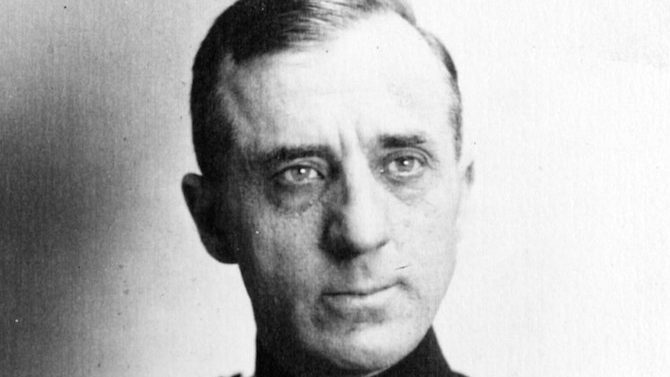As televised impeachment hearings began on Capitol Hill on Nov. 13, the latest book by historian Jon Meacham is a readable, revealing and relevant look at how this nation has reacted in past times of crisis and conflict.
The Soul of America: The Battle for Our Better Angels takes readers on a trip through time to days in America’s history when fear and hope battled on the national stage, with hope winning hard-fought victories. “Progress in America does not usually begin at the top and among the few, but from the bottom and among the many,” writes Meacham about grassroots movements and humble individuals who have changed this nation’s history for the better.
In The Soul of America, Meacham mentions the so-called “Business Plot” by Wall Street interests to oust President Franklin Roosevelt and install a military government with the popular Marine Corps Gen. Smedley Butler at the helm in 1934. “Fearful of Roosevelt and his reforms, the ‘Wall Street Putsch’ conspirators were planning to impose a fascist state,” writes Meacham. “The retired general told FBI director J. Edgar Hoover about the conspiracy. Reports about the Wall Street cabal’s machinations soon leaked, and the threat fell apart.”
On Nov. 21, 1934, a front page headline in The New York Times read, “Gen. Butler Bares ‘Fascist Plot’ To Seize Government By Force,” but the newspaper editorialized at the time that the plot was a hoax and a “bald and unconvincing narrative.” Time magazine called it “a plot without plotters.”
Meacham disagrees, citing writer Jules Archer’s 1973 book, The Plot to Seize the White House. In that book, congressman and former speaker of the House John McCormack said the plot was serious and that, “If Gen. Butler had not been the patriot that he was, and if they had been able to maintain secrecy, the plot certainly might very well have succeeded, having in mind the conditions existing at the time.” The Great Depression cast a pall across America in 1934, and the possibility of authoritarianism in the “land of the free” was very real at the time. Smedley Butler was indeed a patriot who resisted the voices of fear and repression during the Depression era with a force and conviction that is needed today in these times of trial and trumpery.
Born in 1881, Butler served more than 33 years in the military before his death in 1940. Butler was twice awarded the Medal of Honor for his exploits on the battlefield, but he went on to become a fierce opponent of senseless wars. In 1935, the general penned a book titled War Is a Racket, in which he wrote, “War, like any other racket, pays high dividends to the very few. The cost of operations is always transferred to the people who do not profit.”
Of his decades in the military, Butler wrote, “I spent most of my time as a high class muscle man for Big Business, for Wall Street and the bankers. In short, I was a racketeer, a gangster for capitalism… I helped make Haiti and Cuba a decent place for the National City Bank boys to collect revenues in. I helped in the raping of half a dozen Central American republics for the benefit of Wall Street. Looking back on it, I might have given Al Capone a few hints. The best he could do was to operate his racket in three districts. I operated on three continents.”
In The Soul of America, Meacham reminds us of the real patriots like Smedley Butler who came forward in times of national peril to push for hope instead of bowing to fear. He tells us to be mindful of the history of our past and aware of the dangers of demagoguery in our present. Franklin D. Roosevelt was smeared by right-wingers during his time with the anti-Semitic charge that he was secretly a Jew. Barack Obama was called a Kenyan by a preposterous “birther” conspiracy trumpeted by Donald Trump during the Obama years in the White House. In 1936, President Roosevelt said words that still resound with truth today: “Government by organized money is just as dangerous as government by organized mob.”
Like what you just read? Support Flagpole by making a donation today. Every dollar you give helps fund our ongoing mission to provide Athens with quality, independent journalism.










